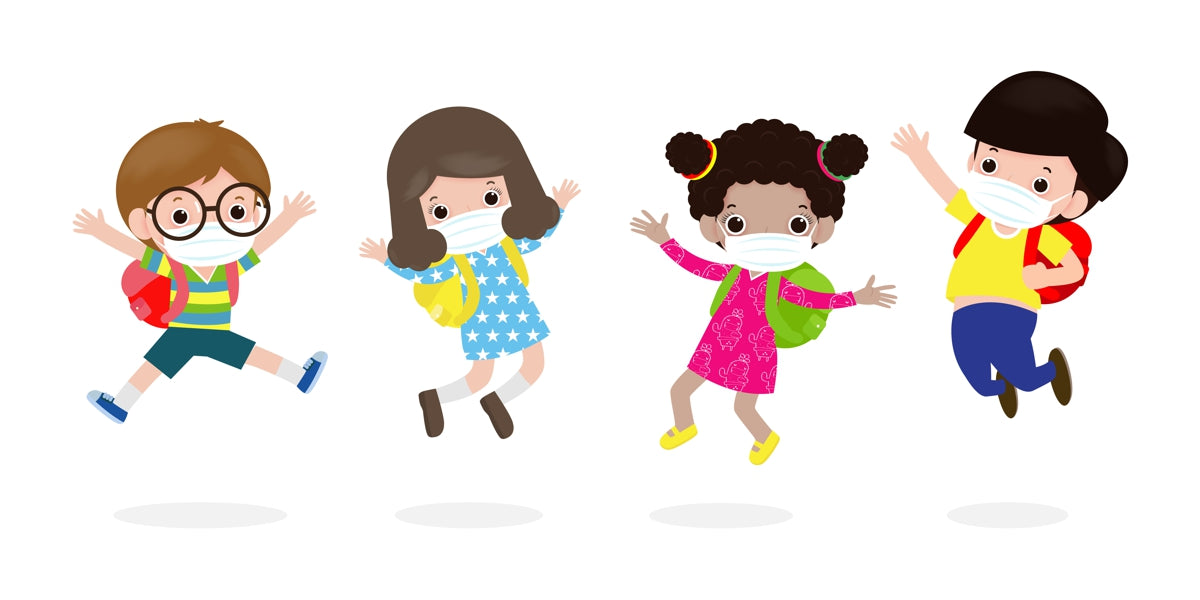
Greetings everyone,
At this point, it would seem that many of us have an uneasy adaptation to the required covid lockdowns.
The Problem…
So we all know that lockdowns and restriction of social activities are not normal for humans, and we might likely expect some negative effects from this.
There are currently mixed “ideas” about whether these closures and social restrictions really are a potential problem - but wouldn’t it be better to be safe than sorry?
“We need to recognize and address the impact of lockdowns and school closures on children's mental health,” Dr. John Whyte, the chief medical officer of the health care website WebMD “Many parents are reporting behavioral issues that previously their children had not exhibited. This is most likely a result of the loneliness, anxiety, and anger that many children are experiencing,” he continued, noting that some studies have shown an increase in sleep disturbances in children since the start of the pandemic.
“Kids often have more difficulty than adults in expressing their emotions and that's why we are seeing these physical manifestations related to a decrease in kids' mental wellness,” he added.
Additional concerns over children’s mental health are weight gain, nutritional status and the stunting of social intelligence.
While I could spend a great deal of time listing out all of the potential issues associated with these changes, I think time would be better spent going over a few simple ways to lessen the stress for kids.
Here are my top tips for keeping kids happy and healthy during the unprecedented times we are in...
1. Maintain routines
To the extent possible, maintain a regular schedule to reassure children and promote physical and mental health. Children need structure, so encourage them to continue learning, playing, eating, and sleeping on the same schedule.
Give them tasks to do.
Keeping children’s minds focused on specific tasks eliminates a lot of their stress. As you can imagine this plays into keeping a routine.
You can structure playtime, assign chores or ask them to create something, anything. Their minds can become hyper-focused on stimuli around them – good or bad. Ask them to create art, make a birdhouse, clean house - obviously not a favorite, but once they are used to it your home will be cleaner and without complaining. Keep their minds focused on a goal and not on things out of their control.
2. Do some exercise every day
With the cancellation, and/or limitation of sports schedules most children have had a significant reduction in their exercise exposures. Try to do some exercise to boost mood and circulation each day by creating a mini routine and find something fun that keeps kids fit and active that makes them feel better.
Anything in the way of their normal sport exercise and fitness routines is best but when that is not possible, create something simple like calisthenic exercise routines such as the examples in the following video are a good starting point, it’s not really about how perfect the exercises are, it’s more about getting into a short routine that can be done daily that keeps at least very basic fitness levels.
https://www.youtube.com/watch?v=h3Xrtm0IVnY
3. Read and write more
Reading and writing are well-documented activities to keep positive neurochemicals going in growing brains.
Get some books that kids may have been meaning to read but haven’t gotten to so far. Maybe there is a book your child would want to write themself, now could be a perfect time!
4. Keep them connected
Develop plans for them to connect with friends or extended family in a safe way, whether it’s by phone, text, or video chat.
5 . Manage media consumption
Limit the amount of screen time or other focus on COVID-19. Too much information can lead to unnecessary anxiety. Let your child know that not everything they hear on TV or the internet is accurate, and tell them you will help them find factual information as they need it. This will not only reduce their anxiety but yours as well. Encourage your children to engage in other activities instead, crafting, play games with the whole family, etc. It can be really fun!
6. Take a deep breath
It seems obvious that breathing is just something we do, but most of us don’t use the breath as a way of controlling our mood and focus/attention.
Before your child eats a meal, have them do 3 deep belly breaths, it helps reduce anxiety, stress and gets them focused on their meal.
Wishing you the best in health for 2021!
Dr. Lorn Allison




